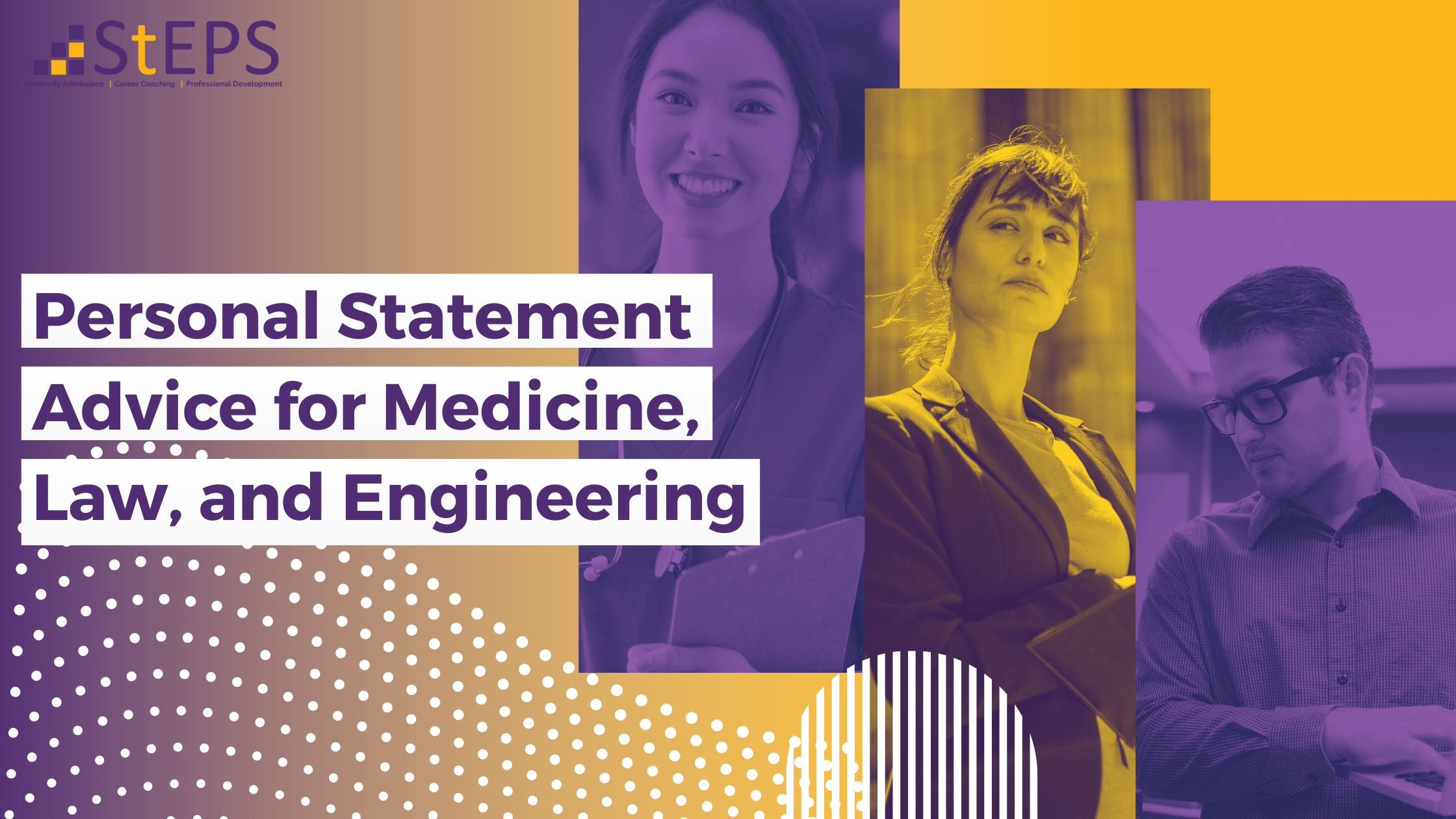A personal statement is your opportunity to present a thoughtful, well-structured account of your academic interests and personal motivations. For competitive subjects like Medicine, Law and Engineering, admissions tutors expect applicants to demonstrate not only enthusiasm but also insight, maturity and a clear understanding of the discipline. Below is tailored advice for each subject, designed to help students write with clarity and confidence.
Medicine: Experience That Builds Understanding
Medicine requires more than strong grades; it calls for emotional resilience, ethical awareness and a genuine commitment to patient care.
What to focus on:
- Personal motivation: Instead of stating a lifelong desire to help others, describe a moment that revealed the human side of healthcare. Supporting someone through illness or volunteering in a care setting can offer meaningful insight into the realities of medical practice.
- Reflection on experience: If you’ve observed healthcare professionals or worked in clinical environments, explain how those experiences challenged your assumptions or deepened your empathy; focus on what you learned rather than listing tasks.
- Engagement with the field: Mention any exploration of medical ethics, public health or current issues in healthcare. Show that your interest is active and informed by real-world understanding.
- Academic preparation: Link your studies to your curiosity. If a topic in biology led you to research patient care or medical innovation, describe how that shaped your thinking.
Law: Thinking Critically About Society
Law demands clarity, analysis and a strong awareness of how legal systems shape everyday life; a successful personal statement should reflect intellectual engagement and a sense of social responsibility.
What to focus on:
- Initial interest: Identify a moment or issue that sparked your curiosity. This could be a courtroom visit, a legal case in the news or a debate that challenged your assumptions.
- Relevant experience: If you’ve taken part in mock trials, public speaking or extended writing projects, reflect on how these helped you develop precision, confidence or the ability to structure arguments.
- Engagement with legal ideas: Refer to a legal controversy or policy debate you’ve followed; explain how it shaped your perspective and encouraged deeper thinking about justice and fairness.
- Academic foundation: Discuss how subjects like history or literature have helped you analyse complex ideas or interpret different viewpoints; focus on how these skills apply to legal study.
Engineering: Curiosity That Leads to Innovation
Engineering combines technical knowledge with creative problem-solving; a strong personal statement should reveal how you approach challenges and why you are motivated to design and build solutions.
What to focus on:
- Hands-on exploration: Describe a project or experiment where you investigated how something works or tried to improve a process. Reflect on what you discovered and how it influenced your thinking.
- Problem-solving mindset: Share how you responded to setbacks or adapted your approach during a technical task; tutors value resilience and logical thinking more than polished outcomes.
- Independent learning: If a topic in physics or computing led you to explore real-world applications, explain how that journey deepened your interest in engineering.
- Collaborative experience: Mention group projects or situations where you communicated technical ideas to others; focus on how those experiences prepared you for teamwork and interdisciplinary work.
Final Reflections
A personal statement should be read as a coherent narrative, not a checklist. The strongest statements reveal how your interests have developed, how your experiences have shaped your perspective and how your goals align with the demands of the course.
Tips for all applicants:
- Begin with a moment, question or idea that captures your voice and sets the tone
- Maintain a reflective tone throughout, showing maturity and curiosity
- Avoid generic phrases and overly broad claims; be specific and purposeful
- Ensure your structure flows logically, with each paragraph building on the last
- Proofread carefully to maintain clarity, professionalism and polish
Writing a personal statement is not about impressing with perfection; it is about presenting a clear, honest account of your journey toward your chosen subject. Whether you are applying for Medicine, Law or Engineering, focus on what makes your perspective unique and how your experiences have prepared you to take the next step. Admissions tutors are not looking for candidates who have done everything; they are looking for those who think deeply, learn actively and show genuine readiness for the challenges ahead. Let your statement reflect the kind of student (and future professional) that you desire to become.

















